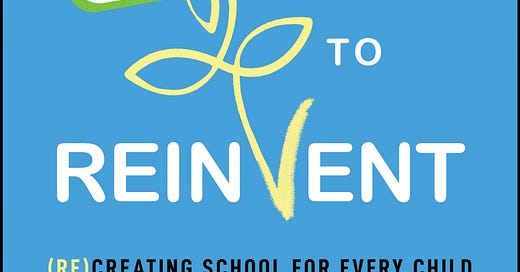Future U. is back for its seventh season! In our welcome-back episode, Jeff Selingo and I dove into the deep end by talking through several higher-ed headlines from the past couple months.
Jeff kicked us off by talking about the new normal hitting higher-ed campuses, as federal funding from COVID relief dries up; colleges strive to get every last TV dollar they can for their athletic programs, which led to the collapse of the Pac-12; West Virginia University is under fire for announcing major cuts after a decade of spending for enrollments that didn’t materialize; and Raj Chetty’s research continues to show that wealthy students are more likely to get admitted to selective colleges than lower-income students with the same standardized test scores. Even more interesting to Jeff, though, is looking at the colleges that are able to attract the very wealthy versus those that aren’t.
After the break, I ranted about college spending and the recent Wall Street Journal article on the topic; talked about my testimony on Capitol Hill; and then offered my perspective on a New York Times article discussing Gov. Ron DeSantis’s views on his time at Yale. DeSantis and I were at Yale at the same time, but based on the article, it seems we have pretty different takes on what it was like to be a student at Yale back then. Jeff and I also had some fun with presidential candidate Vivek Ramaswamy’s apparently serious proposal that the College Board add a physical fitness section to the SAT.
Finally, at the beginning of the episode when Jeff and I were catching up about our summers, I shared that the day the episode went live, I submitted the first draft of my next book that I’m coauthoring with Ethan Bernstein of the Harvard Business School and Bob Moesta of the Rewired Group to our publisher, Harper Collins! I’ll share more as we get closer to publication, but the book is to help people figure out what they want to do next in their careers—and help them understand what tradeoffs they’ll need to make so they can get it. Based on data from thousands of job switchers, one way to think of the book is as the new, slimmed-down What Color Is Your Parachute? fit for today’s day and age.
Listen to the episode, “Demise of the Pac-12, Campus Spending and DeSantis at Yale,” here.
Speaking of Higher Ed Spending
Western Governors University President Scott Pulsipher and I teamed up again to write an oped for the Deseret News titled “It’s time to rethink incentives for higher ed.” We argued that far too many institutions continue to compete on superficial metrics that boost reputations but don’t line up to how well they deliver value to students—and that there are better ways forward. We also pointed to colleges that have changed the equation. In addition to WGU, we highlighted BYU-Idaho, Southern New Hampshire University, the American College of Education, the Quantic School of Business and Technology, Georgia Tech’s online master’s of computer science, and the University of Illinois’ iMBA program.
It’s time to rethink the incentives underlying American higher education. And it’s time to reject outdated mindsets that associate spending and other superficial metrics as part and parcel of delivering a higher-quality education.
Although the recent focus on student loans has elevated the cost crisis to that of a national imperative, we must recognize that the debt passed onto students is merely a symptom of the larger problem: Our colleges are addicted to spending, and it’s time to shake things up.
Reinventing School
In October, I’ll be traveling to the annual conference hosted by the Southern Association of Independent Schools to talk about the themes from my most recent book, From Reopen to Reinvent. In advance of that conversation, SAIS published a piece I wrote, titled “Reinventing School,” which you can read here.
What if we could better fit schools into the progress that parents want for their children?
There are answers.
Don't settle for mediocrity.
Two More Before You Go
In Inside Higher Ed, Jessica Blake reported on how Notre Dame de Namur is celebrating its 100th anniversary as administrators prepare to sell the California campus to keep the institution afloat.
Will they be able to make the numbers work? As I told Jessica, “The real estate that they’re sitting on, that’s a lot of assets. I assume that will help them with their enrollment plans. … And what we see consistently is that when you have more focus, that reduces complexity and an operation that reduces the need for administrative overhead.”
Read the article, “‘Bittersweet’ Milestone for a Catholic University,” here.
And in Forbes, Emmy Lucas profiled the evolution of the company Course Hero. Its founder, Andrew Grauer, created a parent company, called Learneo, to incubate and support a variety of new entrepreneurial ventures. From my perspective, the creation of Learneo is smart. Grauer is savvy to have made the move. As I told Lucas, “If you want to have a deeper, widespread impact that’s sustainable over time, you need to catch the next disruptions. And by moving into this structure, [Grauer] allows himself to support the up-and-coming innovators.”
Until next time, thanks for reading, writing, and listening.






Hi Michael. I've always been very interested in increasing self-knowledge at earlier ages, (e.g. pre-school to 12). I'd be very interested in hearing / talking more about your new book and your thinking in this area. At what age-group is it aimed? Can I read it pre-pub?